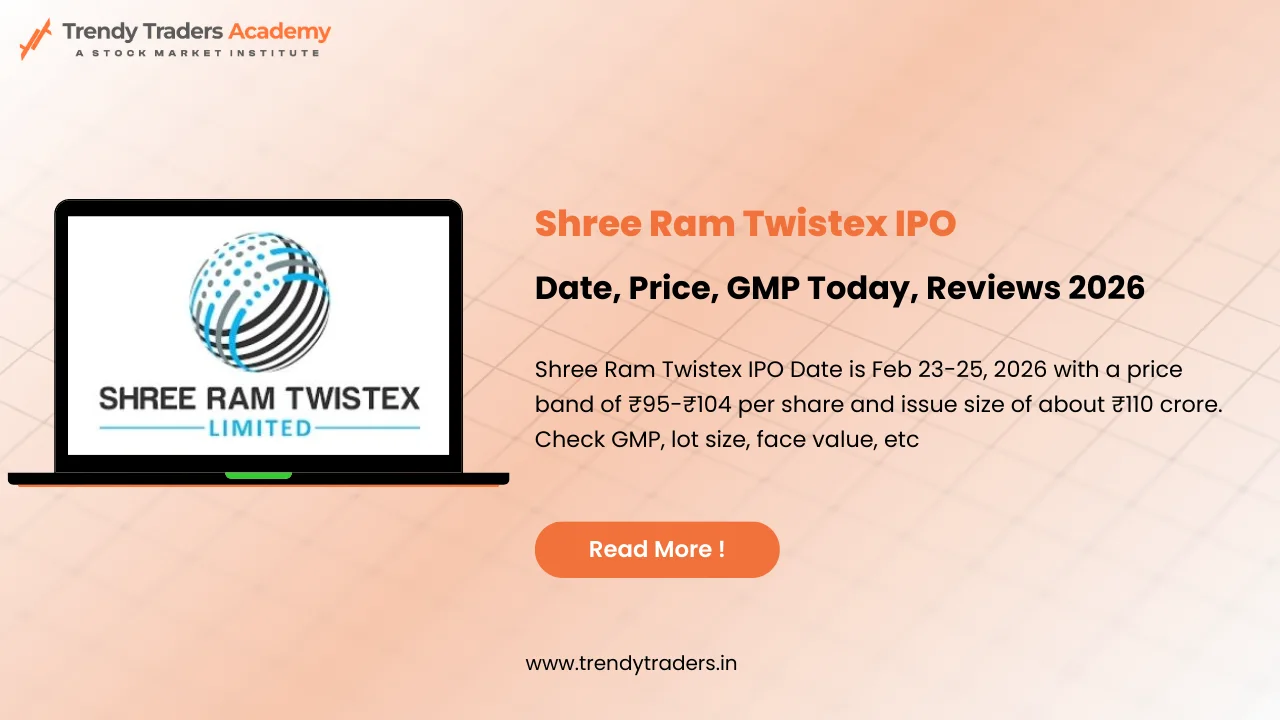
How to Invest in Nifty 50 Index Fund ?
Investment in Nifty 50 Index Funds is an easy route to enjoying India’s greatest businesses. Nifty 50 index comprises the largest and most stable firms that represent different industries, which is acceptable to the investors at all levels of experience.
This guide explains what Nifty 50 is, explains how to start investing in Nifty 50 Index Funds, lists advantages of indexing, and helps you to determine the most suitable Nifty 50 index fund for your goals.
What is Nifty 50?
- Nifty 50 is the main benchmark for the Indian stock market and consists of the top 50 companies which have high market presence being traded on the national stock exchange (NSE).
- It is a diverse collection of sectors including banking, IT, FMCG, manufacturing, energy, automobiles providing wide market representation.
- The index value is mostly influenced by big firms which have bigger free-float market capitalization, simply because they control more shifts in the index.
- Investors can diversify their risk using Nifty 50 Index Funds while avoiding having to choose particular stocks.
How to Invest in Nifty 50 Index Fund?
The process of making a start on Nifty 50 Index Funds is not difficult. This is how you can begin with your investment:
1. Choose a Nifty 50 Index Fund
- Select mutual funds, which are also benchmarked with the Nifty 50 index.
- Compare funds based on:
- Expense ratio (lower is better).
- Historical returns (assess past 5-10 years).
- respond
2. Open an Investment Account
- another option
- Investment platforms such as Groww, Zerodha coin, paytm money and kuvera.
- You are also free to invest directly through Banks or Asset Management Company (AMC).
- Stock Brokers who offer you a direct purchase of mutual funds.
3. Select Your Investment Mode
- Lump Sum Investment: All your funds contribute at once to invest.
- Systematic Investment Plan (SIP): Set aside a fixed sum to your investment each month or quarter.
4. Complete KYC (Know Your Customer) Process
- Submit PAN card, Aadhaar card, and bank account details for verification.
- KYC is mandatory for mutual fund investments in India.
5. Start Investing
- Select the fund, enter the amount, and confirm the transaction.
- Monitor fund performance periodically.
6. Track & Rebalance Investments
- Review your portfolio at least once every six months.
- Consider rebalancing investments based on market conditions.
Top Nifty 50 Index Funds in India
When selecting the best Nifty 50 Index Funds, consider expense ratios, fund stability, and long-term returns. Here are some of the top Nifty 50 Index Funds available:
Fund Name | Expense Ratio | Returns (5-Year CAGR) |
UTI Nifty 50 Index Fund | 0.20% | 13.5% |
HDFC Nifty 50 Index Fund | 0.30% | 12.8% |
ICICI Prudential Nifty 50 Index Fund | 0.25% | 13.2% |
SBI Nifty 50 Index Fund | 0.22% | 12.9% |
Nippon India Nifty 50 Index Fund | 0.27% | 13.0% |
Expense ratio is a critical factor because lower costs mean higher returns over time.
Top Reasons to Invest in NIFTY Index Funds
1. Diversification Across Leading Companies
NIFTY Index Funds invest in 50 top-performing large-cap companies from multiple sectors.
Reduces risk by spreading investments across banking, IT, FMCG, manufacturing, energy, and more.
2. Low-Cost Investment Option
Lower expense ratios compared to actively managed mutual funds.
No need to pay fund managers for stock selection—index funds follow the market automatically.
3. Long-Term Wealth Creation
NIFTY 50 has historically delivered 12-15% annual returns over the long term.
Ideal for investors seeking compounded wealth growth without frequent trading.
4. Passive Investing Strategy
No need to pick individual stocks—funds adjust holdings as per the index.
Suited for investors looking for low-maintenance portfolio management.
5. Protection Against Inflation
Equity investments outperform inflation, ensuring real value appreciation over time.
NIFTY Index Funds preserve purchasing power, making them a strong hedge against rising costs.
6. Easy Accessibility & Investment Flexibility
Available through SIPs (Systematic Investment Plans) and lump sum investments.
Can be invested via mutual fund platforms, banks, and brokerage firms.
7. Suitable for All Types of Investors
Beginners: Ideal for those new to stock market investing.
Long-Term Investors: Perfect for wealth creation through consistent market exposure.
Retirement Planning: Helps secure financial future with stable and predictable returns.
Is NIFTY Index Fund a Good Investment?
Yes, if you seek diversification, steady growth, and lower risk.
Yes, if you prefer a passive investment strategy over stock picking.
Yes, if you want consistent returns with low expenses.
However, index funds follow the market, meaning they may decline in bearish conditions. Investors should stay committed for at least 5-10 years for optimal returns.
Ideal Investment Strategy for Nifty 50 Index Funds
For Beginners:
- Start with a SIP plan to gradually build wealth.
- Stay invested for at least 5-10 years for higher returns.
For Long-Term Investors:
- Consider Lump Sum Investment during market corrections.
- Monitor expense ratios and fund performance regularly.
For Retirement Planning:
- Invest consistently in Nifty 50 Index Funds for financial security.
- Use SIPs and reinvest dividends for compounding benefits.
Potential Risks of Investing in Nifty 50 Index Funds
While Nifty 50 Index Funds offer stability, investors must consider the following risks:
1. Market Fluctuations
Since the index follows market movements, periods of economic downturns can cause declines.
2. No Active Management
Index funds do not actively adjust portfolio allocations, meaning they follow the market even during volatility.
3. Lower Short-Term Gains
While long-term returns are strong, index funds may not provide quick gains like individual stocks or sectoral funds.
Conclusion:
The Indian economy is growing and investing in Nifty 50 Index Funds is offering an investment avenue with low risk. The Nifty 50 Index Funds which are stabilizing, have a low risk profile, and can diversify ports make them ideal for both seasoned and novice investors.
Selecting the leading Nifty 50 Index Funds, regularly updating your strategy, and choosing long-term returns will help you to build a robust investing mix.
FAQ'S
What is Nifty 50?
Nifty 50 is a stock market index representing the top 50 large-cap companies listed on the National Stock Exchange (NSE) of India. It serves as a benchmark for the Indian equity market.
What is a Nifty 50 Index Fund?
A Nifty 50 Index Fund is a mutual fund or ETF that aims to replicate the performance of the Nifty 50 index by investing in the same 50 stocks in the same proportion.
How to Invest in a Nifty 50 Index Fund?
You can invest in a Nifty 50 Index Fund through:
- Mutual fund apps or websites
- Online brokerage accounts
- Directly via AMC (Asset Management Company) websites
- Choose between lump sum or SIP (Systematic Investment Plan) based on your strategy.
Is it Good to Invest in Nifty 50 Index Funds?
Yes, Nifty 50 Index Funds offer diversification, low cost, and long-term growth potential by tracking India’s top companies. However, returns are market-linked and may vary.
What Are the Top Nifty 50 Index Funds in India?
Some of the top-performing Nifty 50 Index Funds include:
- HDFC Index Fund – Nifty 50 Plan
- UTI Nifty Index Fund
- ICICI Prudential Nifty Index Fund
- SBI Nifty Index Fund
(Note: Fund performance can change over time; always check latest data before investing.)
What is the Minimum Amount Needed to Invest in a Nifty 50 Index Fund?
You can start investing with as little as ₹100 in most mutual funds via SIP. Lump sum minimums vary by fund house but are generally around ₹1,000.
Is Nifty 50 Suitable for Beginners?
Yes, Nifty 50 Index Funds are ideal for beginners due to low expense ratios, passive management, and exposure to India’s most stable companies.
How Does a Nifty 50 Index Fund Work?
The fund passively tracks the Nifty 50 index. When the index composition changes, the fund automatically adjusts its holdings to match the updated list and weightage.










